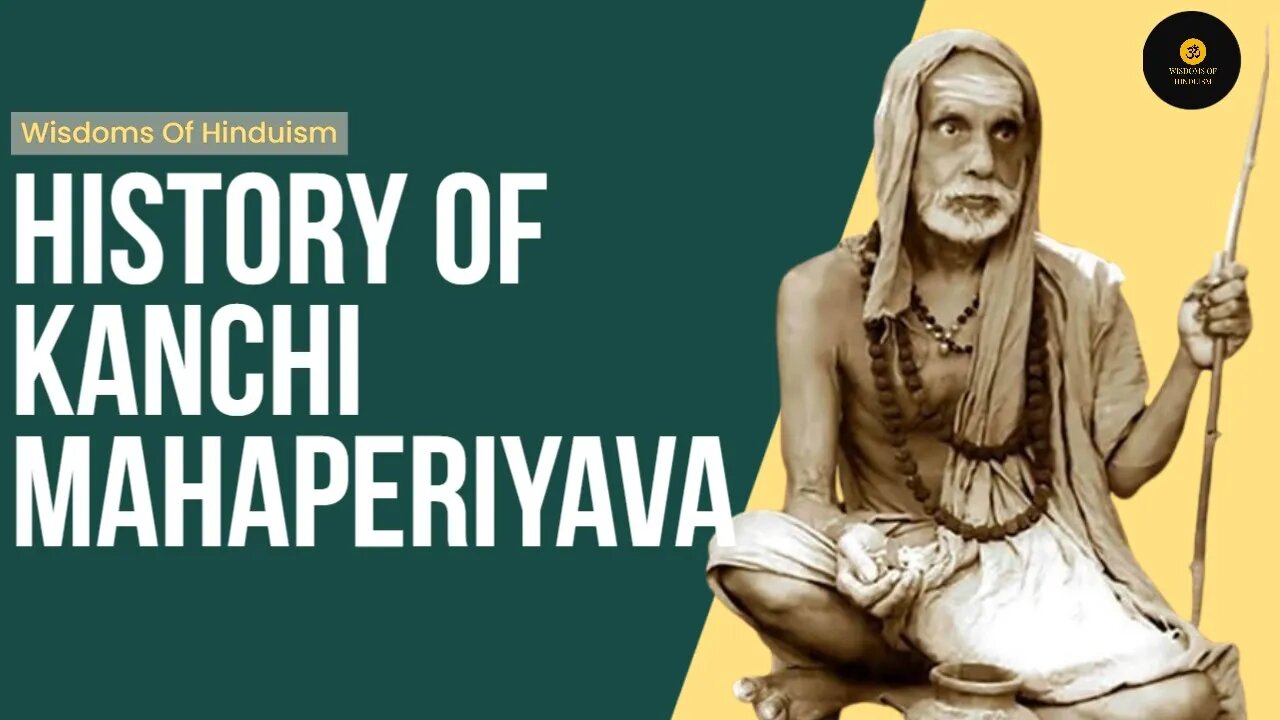Premium Only Content

Story of Kanchi Mahaperiyava| Miracles & Teachings of Periyava
Jagadguru Shri Chandrasekhrendra Saraswati Mahaswamigal also known as the Sage of Kanchi was the 68th jagadguru Shankaracharya of the Kanchi Kamakoti Peetham. His discourses were recorded in a book titled “Deiyvuthin Kural’‘, meaning: Voice of God.
Kanchi Maha Periyuva was born on 20th of May in 1894 as Swaminathan Sharma at villupuram, south arcot district of Tamilnadu. Being born in a kannada brahmin family, kanchi maha periyava is the second child of the couple subrahmanya sastri and Mahalakshmi.
He has got his Upanayanam–, a traditional ritual for initiation of schooling in Hinduism, at tindivanam in 1905. He became well versed in vedas, puranas and various hindu epic texts,indian literatures and started performing pooja as well.
Later on he ascended kanchi kamakoti peetam and became the 68th acharya after the samadhi of 66th acharya Sri Chandrasekhrendra Saraswati VI. There he got his sanyasa name as chandhrashekhrendhra saraswathi.
During his 15th age he got trained in various aspects in 1909 and studied under pandits at kumbakonam for 2 years. He then continued his studies during the years 1911 to 1914 and returned to kumbakonam in 1915 at the age of 21.
Maha Periyava always tried his best to relieve his devotees’ stress through his speech, and emphasize the importance of a Guru in one’s life. He frequently speaks about the importance of following the obligation path. His discourse is called “Deiyvuthin Kural”(Voice of the Divine). The discourse which we will be covering on our YouTube channel:Wisdoms of Hinduism.
He showed a grateful path to freedom and to the rise of the modern nation.
He worked for: Social unity, National integration, Cultural improvement, Spiritual awakening, Science, Architecture, Art and Music.
“The medicine of Grace to wipe out our sorrows is to develop unshakable faith in God and tolerance is the medicine of Grace to wipe out our sorrows. Bhakti alone can give us the capacity to put up with sorrows. Temples are the agencies for developing that Bhakti. Hence, the need for temples at all places. All offerings to the deities in the temples are tokens of our gratitude to God”
-
 1:06:02
1:06:02
Sean Unpaved
2 hours agoQuarterbacks, Coaches, & Contracts: Sanders' Draft Drama, Meyer vs. Harbaugh, & McLaurin's Big Deal
14.9K -
 2:11:45
2:11:45
Steven Crowder
5 hours agoDonald Trump Vs American Crime: Chicago is Next & Libs Are Freaking Out
299K278 -
 41:08
41:08
Grant Stinchfield
2 hours ago $1.49 earnedDemocrats Try to Turn California Into Predator Playground with Proposed "Child Predator Dream Bill"
16.7K2 -
 1:21:06
1:21:06
Rebel News
2 hours agoCdn troops in Ukraine? Poilievre backs self-defence, Hamas thugs cancel Ottawa Pride | Rebel Roundup
18.3K19 -
 24:58
24:58
Neil McCoy-Ward
3 hours ago⚠️ OUTRAGE! What They Just Announced For YOUR HOME!!! 🚨
18.4K11 -
 LIVE
LIVE
IrishBreakdown
4 hours agoNotre Dame and Miami Set To Reignite Intense Rivalry
271 watching -
 1:57:07
1:57:07
The Charlie Kirk Show
3 hours agoChicago Next! + The Blue Slip Problem | Sen. Tuberville, Alex Clark | 8.25.2025
54.3K18 -
 1:20:52
1:20:52
Benny Johnson
5 hours ago🚨Trump LIVE Now: Signs Executive Order ENDING Cashless Bail | Dem Cities PANIC, Which City NEXT?...
68.1K54 -
 1:31:26
1:31:26
The White House
6 hours agoPresident Trump Signs Executive Orders, Aug. 25, 2025
46.3K21 -
 1:36:43
1:36:43
The Mel K Show
3 hours agoMORNINGS WITH MEL K - Starving the Globalist Funded Color Revolution in America 8-25-25
20.5K10